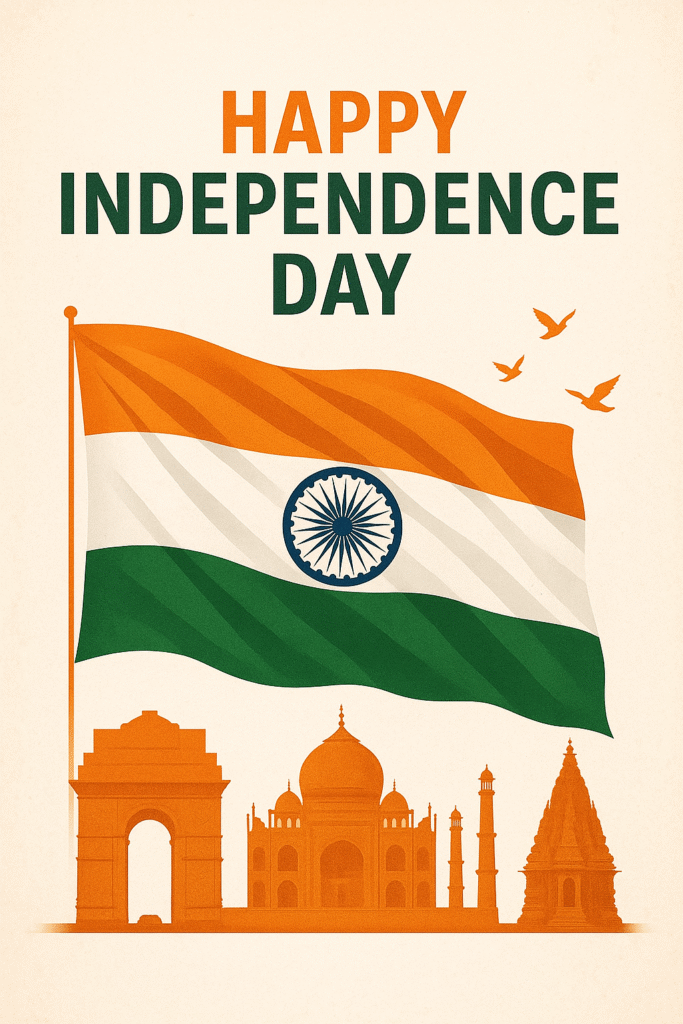Independence Day: The History and Significance

Celebrate Independence Day with us! Discover the history, traditions, and festivities that make this holiday a cherished occasion for all Americans.
Trending News Fox, Digital Desk Team, Kolkata
“Fast. Fierce. First on the Story.”
Edited by Saibal Bose
A Day to Remember: The History and Significance of Independence Day
India’s Independence Day is celebrated on August 15th each year. It is a day of profound significance. It commemorates the nation’s liberation from nearly two centuries of British colonial rule. This pivotal moment occurred on August 15, 1947. It marked the end of a long and arduous struggle.
This struggle was characterized by non-violent resistance and civil disobedience. These efforts were led by figures like Mahatma Gandhi and Jawaharlal Nehru. This day doesn’t just signify political freedom; it marks the birth of a sovereign, democratic republic. It is a collective assertion of national identity and self-determination.
The path to independence was a tapestry of transformative events. Movements like the Swadeshi Movement of 1905 focused on promoting Indian-made goods. The Quit India Movement of 1942 demanded an immediate end to British rule.
These movements showcased the unwavering resolve of the Indian people. The struggle, nonetheless, was not without sacrifice. The joy of freedom was tempered by the tragic Partition of India into two separate nations: India and Pakistan.
Today, Independence Day is a national holiday celebrated with great enthusiasm and patriotism. The centerpiece of the celebrations is the hoisting of the national flag. This event takes place at the historic Red Fort in Delhi. The Prime Minister conducts the ceremony, followed by a speech to the nation.
Across the country, flag-hoisting ceremonies, cultural programs, and parades take place in schools, colleges, and government institutions. The sky is often filled with colorful kites, a symbol of freedom soaring high. The day serves as a powerful reminder of the sacrifices made for liberty. It is a call to uphold the values of unity, democracy, and justice.
Independence Day: Frequently Asked Questions (FAQs)
Q1: Why is Independence Day celebrated on August 15?
A: On August 15, 1947, the Indian Independence Act 1947 came into effect. This act officially transferred legislative sovereignty from the British Parliament to the Indian Constituent Assembly. Lord Mountbatten, the last Viceroy of British India, chose this date. He wanted it to coincide with the second anniversary of Japan’s surrender in World War II.
Q2: What is the significance of the Prime Minister’s speech at the Red Fort?
A: The Prime Minister’s speech at the Red Fort is a long-standing tradition. It was initiated by India’s first Prime Minister, Jawaharlal Nehru. In his speech, the Prime Minister highlights the nation’s achievements. He raises important issues. He also pays tribute to the leaders of the freedom movement.
Q3: What does the Indian flag symbolize?
A: The tricolor Indian flag, with its saffron, white, and green stripes, holds deep meaning. Saffron stands for courage and sacrifice, white symbolizes peace, truth, and honesty, and green stands for faith and fertility. The navy-blue Ashoka Chakra in the center signifies the wheel of righteousness and progress.
Tags
#IndependenceDay #IndependenceDay2025 #India #August15 #FreedomStruggle #IndianHistory #Patriotism #Tricolor #RedFort #JawaharlalNehru #MahatmaGandhi
Discover more from Trending News Fox
Subscribe to get the latest posts sent to your email.




